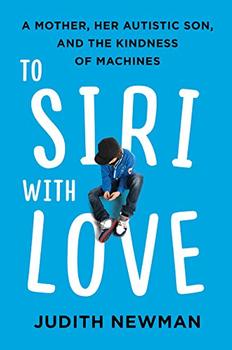 Right now, President Trump, a Florida Sheriff, and millions of citizens are talking about how involuntarily locking up mentally ill/neurodivergent people is the answer to the U.S.’s gun violence problems. According to them, corralling all the “savage sickos” in hastily-erected, for-profit hospitals is in everyone’s best interests. Registering and rounding up neurodivergent people is much more practical and desirable than registering or confiscating people’s guns; Second Amendment freedoms apparently are more valuable than Fourth Amendment freedoms.
Right now, President Trump, a Florida Sheriff, and millions of citizens are talking about how involuntarily locking up mentally ill/neurodivergent people is the answer to the U.S.’s gun violence problems. According to them, corralling all the “savage sickos” in hastily-erected, for-profit hospitals is in everyone’s best interests. Registering and rounding up neurodivergent people is much more practical and desirable than registering or confiscating people’s guns; Second Amendment freedoms apparently are more valuable than Fourth Amendment freedoms.
As most of us should know by now, neurodivergent folks are only responsible for 1% of gun violence in the United States. Beginning another Aktion T-4 wouldn’t even have any discernable effect on gun violence in this country. But neurodivergent people are often the ones to pay for neurotypicals’ violence.
This stark ableism doesn’t matter to most Americans, because it doesn’t affect them. We’re not really human in their eyes.
Liberals reading this are no doubt nodding along, albeit without much emotion. Most of you think all this talk of locking us up is just bluster. Nothing could ever possibly come of the sitting U.S. President loudly calling for the wholesale imprisonment of a whole class of people, who have committed no crime other than to be born with different brains. To most of you, it’s just another annoying thing right-wingers say. It’s no real threat to you.
You need to take this seriously. Liberals: YOU AREN’T HELPING.
I hear the things you say. The jokes you crack when Trump calls for our involuntary hospitalization: “Well, Trump should be the first one in, crazy as he is!” I hear you talking about how life was better before Reagan shut down all the mental hospitals. “All the sudden, the streets were full of screaming wackos.” Did you know those hospitals he shut down were hellish places where we were sometimes warehoused naked in bare rooms, hosed down for sanitation? Did you know we generally got no treatment other than perhaps a five-minute visit from a psychiatrist once a month, and no medication save for body- and mind-destroying chemicals like Thorazine?
Homelessness was actually a step up for the mentally ill. But all you care about is that, before, you didn’t have to see us.
So, when the time comes to round us up, you will sit by, telling yourself it’s a good thing for society, and even a good thing for us.
You feel not a whit of compassion or empathy for mentally-ill people. It doesn’t occur to you what it might be like to be locked up for no reason, even under the best of conditions (and they won’t be the best of conditions). To you, we’re not human, so it doesn’t register that we have feelings, thoughts, a life that we want to live.
For the most part, Liberals don’t actively campaign for us all to be locked up. However, they do say mentally ill people shouldn’t be able to get guns. Well, okay. But you know that means you’re taking constitutional rights away from a marginalized group for no reason, right? You’re denying us the liberties you enjoy, simply because of how we were born. And think through what it would entail, to take those rights from us. It means that, whenever someone got a diagnosis, our doctor would have to report us to the government and have us put on a list, so that we couldn’t get guns. Does that sound cool to you? Hint: it’s not.
Did you know that a domestic violence conviction doesn’t preclude someone from having a gun? That’s a much better predictor of gun violence than mental illness, but it doesn’t occur to y’all to ban those folks (who are already known to the government, because of their conviction, and who actually did something wrong), instead of the neurodivergent. (Those who want to jump in and say they ARE banned from having guns, please do your research. That ban only prevents them (in some limited cases) from BUYING guns, and has a billion loopholes that have allowed a large number of men with DV convictions to be mass-shooters with legally-obtained guns.)
Liberals don’t stop there with the ableism, though. They tell people not to “humanize” folks like Nikolas Cruz by pointing out that he might be neurodivergent. I have news for you: he is human. Human beings are the ones who take high-powered semi-automatic weapons and shoot other human beings. In Cruz’ case, it was because he was apparently a white supremacist, and had a violent personality. Yes, you can throw in the neurodivergence (though as I stated before, statistically, neurodivergence and violence are inversely related, so it doesn’t make sense), but then you’d also have to take a look at how society systematically shunned, tortured and mistreated a lonely and confused little boy until he grew evil enough to do what he did.
That’s not an excuse for him, though. Society tortures and shuns all neurodivergent people, all the time, and most of us don’t ever hurt anyone else.
Neurodivergence is not a predictor of violent behavior. However, Cruz had been reported to the police and FBI dozens of times for violent behavior. Strangely enough, violent behavior is a predictor of violent behavior, whether you’re neurodivergent or neurotypical.
Despite all this, liberals are willing to throw neurodivergent folks under the bus in order to feel like they’re keeping their kids safe. Statistically, ableism is a lot more likely to harm their children than gun violence. It’s estimated that one in five people suffers some sort of mental illness in their lifetime, and every one of those people will be hurt by ableism. I don’t know how many people are hurt by gun violence, but it’s definitely not 20% of the population. So, they’re actually hurting their kids with their ableist shitfuckery, not keeping them safe.
I’ve waited until the end of this to make something clear: I’m completely in favor of gun control. But if you have to take away neurodivergent folks’ liberty and humanity to do it, it’s not worth doing.
However, here’s some good news that is so fucking common sense that I shouldn’t have to say it: YOU CAN HAVE EFFECTIVE GUN CONTROL WITHOUT TAKING AWAY NEURODIVERGENT CIVIL RIGHTS. In fact, taking away our rights will have close to zero effect on gun violence.
So please. Fight for gun control, but leave us out of it. And take our president seriously when he talks about locking us up. Stand up to him when he says shit like this, instead of laughing it off.
Thank you.
Elizabeth Roderick is a savage sicko who writes about screeching wackos. You can explore the wonders of Neurodivergent culture (and support a marginalized artist) by reading her books.
 (revisiting this post from 2015)
(revisiting this post from 2015)




